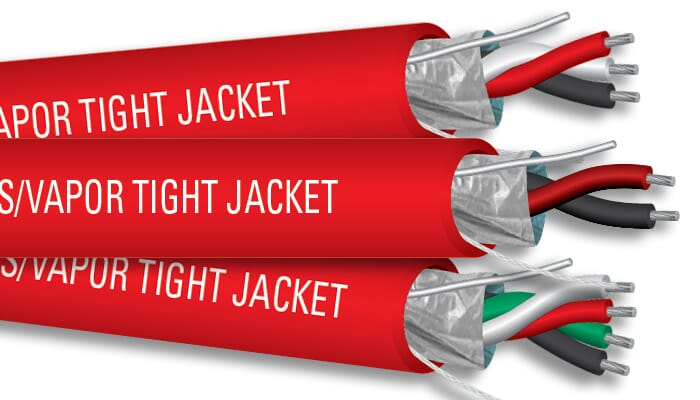Navigating the Risks for Gas Station Operations with Oil and Gas Resistant Shielded Cables

Enhancing Gas Station Safety with Oil and Gas Resistant Shielded Cables
Regarding gas station operations, safety is of the utmost importance. One safety protocol that plays a crucial role is the use of gas and oil resistant shielded cables. These cables serve as a vital backbone for maintaining operational integrity and preventing hazardous incidents.
How exactly do these resilient cables contribute to the safety matrix of a gas station? The answer lies in their robust design and the enhanced protection they offer against environmental factors and operational stresses. As the industry evolves with technological advancements, the importance of these cables only escalates.
This blog delves into the significance of oil and gas resistant shielded cables in gas stations, unraveling their contribution to creating a safer, more efficient, and compliant environment for workers and patrons. By understanding their role, we can appreciate the invisible yet indispensable safety net they provide in this high-stakes industry.
EMV Upgrades: The New Standard in Gas Station Safety
The introduction of EMV (Europay, Mastercard, and Visa) upgrades in gas stations marks a significant leap in operational safety and compliance. At the core of these upgrades are gas station cables for EMV upgrades, which are pivotal in ensuring secure and reliable transactions. Specifically designed to provide support for the advanced EMV technology, which serves as a protective measure against data breaches and fraudulent activities.
The implementation of EMV technology in gas stations considerably enhances the safety protocols of the establishment while also conforming to international payment security benchmarks. The use of gas station cables for EMV upgrades is a testament to the industry's commitment to adopting cutting-edge technologies for enhanced security.
These cables ensure uninterrupted and secure communication between the payment terminals and the financial networks, a critical aspect in the fast-paced environment of gas stations. By integrating these cables, gas stations are improving their safety measures and stepping up to meet customers' evolving expectations in a digitally connected world. Thus, the role of these cables extends beyond mere functionality; they symbolize trust and reliability in a sector where safety and security are non-negotiable.

Exploring Safety Standards: Cables in Oil and Gas Operations
Safety standards are of utmost importance in the intricate landscape of oil and gas operations. The Gas Resistant Pair Solid Cables are a key component that upholds these standards. These cables are designed to withstand the harsh conditions typical in oil and gas environments, including exposure to oil, gas, and other potentially corrosive substances. The durability and gas and oil resistance of these cables ensure that they can perform reliably in situations where standard cables might fail, thus preventing potential hazards.
The stringent safety standards for cables in oil and gas exploration mandate that cables resist physical wear and tear and maintain functionality in extreme conditions. Gas Resistant Pair Solid Cables meet these rigorous requirements, playing a critical role in maintaining continuous and safe operations.
These cables are integral to transmitting data and power efficiently, which is vital for monitoring and controlling the complex processes in oil and gas exploration. By adhering to the highest safety standards, these cables contribute significantly to preventing accidents and ensuring the smooth operation of equipment. Their resilience and reliability make them a cornerstone in the safety infrastructure of the oil and gas industry, where precision and durability are not just desired but essential.
Under Pressure: Performance of Oil Resistant Wire
In the high-stakes environment of gas station operations, the performance of oil-resistant wire under stress becomes a focal point of safety and reliability. These wires are specifically engineered to withstand the challenging conditions prevalent in such settings, where exposure to oil, chemicals, and extreme temperatures is common. The robust nature of these wires ensures they retain their integrity and functionality even when subjected to such harsh elements. This resilience is pivotal, particularly when wires are constantly in contact with petroleum products.
The oil-resistant feature of these wires is not just a protective measure; it is a critical requirement for maintaining uninterrupted operations and preventing potential hazards. The ability of these wires to resist degradation from oil exposure means a lower likelihood of wire failure, which is crucial in preventing accidents and ensuring continuous, safe operations. Moreover, the durability of these wires under stress translates to a longer lifespan and reduced maintenance needs, making them a cost-effective solution in the long run.
The performance of oil-resistant wire under stress exemplifies the integration of longevity, efficiency, and safety, rendering it an essential element in the gas station infrastructure.
Windy City Wire: Leading the Way in Gas and Oil Cabling Solutions
The exploration of advanced safety protocols in gas station operations highlights the indispensable role of oil and gas resistant shielded cables, especially in EMV upgrades, adherence to rigorous safety standards, and performance under harsh conditions. With our commitment to excellence and innovation since our company’s inception in 1994, Windy City Wire stands at the forefront of providing these vital cabling solutions.
Our large ecosystem of products, including gas and oil-resistant cables, is tailored to meet the high demands of the gas and oil industries. Our company, Windy City Wire, is not merely an industry supplier; we are also a partner with a focus on customer-centric solutions and a history of increasing safety and efficiency.
Windy City Wire provides the products, services, and knowledge required to assist gas station operators in attaining unprecedented levels of compliance and safety. Contact us for your gas and oil wire and cabling needs, and join the ranks of those leading the way in industry safety and innovation.